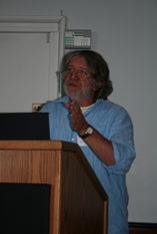
Organic leaders have met to discuss standards for glasshouse and polytunnel growers which have been overlooked by national and international standards organisations for decades.
The Soil Association hosted a meeting of key organic players at the Royal Horticultural Halls in London on Thursday to kick-off debate in a consultation on organic protected cropping.
The Soil Association is to run an initial consultation, and has issued a green paper, on new standards for the sector ending on 9 July before further consultation and a decision on new standards ahead of EU talks on the matter later this year.
Alan Schofield, chair of the Organic Growers Alliance, said no standards had ever fully address the category, including the EU organic regulations for horticulture set out in 1992, and said it was “important to allow growers to make it clear what consumers are buying into”.
Schofield pointed to new disease resistant rootstocks, more productive grafting techniques and combined heat and power advancements as key changes in the protected cropping sector.
The debate centred upon the current requirement for organic protected crop growers to rotate crops to aid the soil.
Delegates largely concurred that there should be two-tiered standards for those using seasonal glasshouses and polytunnels and those producing monocrops year round, often for the supermarkets.
Philip Morley, technical manager at Wight Salads which supplies M&S, Waitrose, Sainsbury’s and Tesco among others, told delegates “growing less susceptible, better tasting tomatoes makes growing very difficult under organic conditions”.
He also warned of the dangers of the pest Tuta Absoluta to the industry, saying it had been dubbed the “biggest threat to glasshouse crops in a generation” and that Wight Salads have embarked upon an organic project, backed by £180,000 of HDC funding, to look at the pest.



